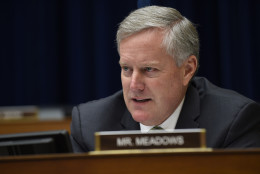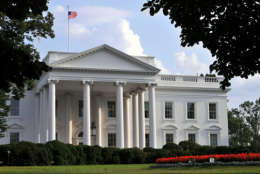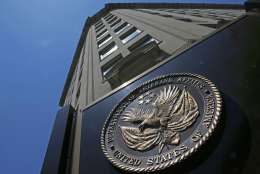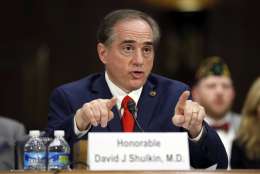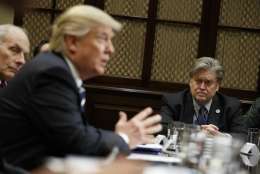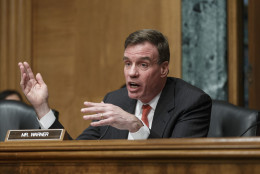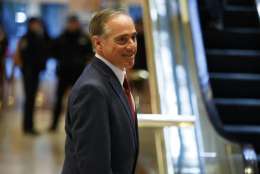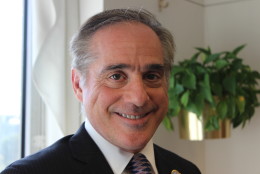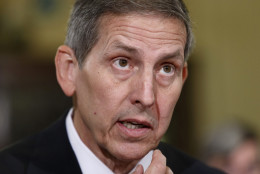Department of Veterans Affairs
-
The Veterans Benefits Administration sees progress with the National Work Queue, the automatic workload system that assigns a veteran's claim to the regional office that has the most capacity to immediately begin work. But Congress is concerned the NW Queue creates unnecessary confusion and can't address the growing backlog of veterans claims.
February 17, 2017 -
A recent Government Accountability Office report on the Veterans Affairs Department and its employees' use of official time is renewing a debate among lawmakers: Does official time have a place within agency operations, and how much time is too much?
February 16, 2017 -
On the personnel front, the Trump administration had an up-and-down week. The departure of National Security Adviser Michael Flynn and the withdrawal of Labor Secretary Andrew Puzder set Washington abuzz. But the Senate confirmed Michael Mulvaney as director of the Office of Management and Budget, Steve Mnuchin as Treasury secretary, and Dr. David Shulkin as VA secretary.
February 16, 2017 -
The Government Accountability Office had some hard truths for the Veterans Affairs Department, which has failed to produce more modern, interoperable IT systems after years of failed pilots and heated congressional hearings. GAO says VA should drop its plans to modernize VistA and find a commercial option instead.
February 07, 2017 -
David Shulkin, President Donald Trump's pick to lead the Veterans Affairs Department, earned high praise from the Senate committee during his nomination hearing. Changing the department's current Veterans Choice Program and crafting new accountability and disciplinary procedures for VA employees were common topics.
February 02, 2017 -
The Office of Management and Budget and Office of Personnel Management released another memo with more details on how agencies should implement the President's hiring freeze. The latest guidance includes exemptions to the hiring freeze and instructions for how agencies should request others.
January 31, 2017 -
Sources confirmed CIOs from State, DHS, EPA and OPM and the CTO from VA talked a variety of issues with the Trump transition team toward the end of Obama administration.
January 30, 2017 -
Rob Snyder, the acting secretary of the Veterans Affairs Department, officially exempts some health care, construction and project management professionals from the President's short-term hiring freeze. Snyder's announcement comes after repeated appeals from some lawmakers, who said the freeze could impact veterans' ability to access health care.
January 27, 2017 -
The Defense Department and Veterans Administration tell Congress their still working out the bugs at their joint health care facility in Chicago.
January 25, 2017 -
Senator Mark Warner (D-Va.) is urging a handful of large agencies to quickly move forward in their efforts to roll out the DATA Act by the May 2017 deadline.
January 18, 2017 -
Veterans service organizations and the American Federation of Government Employees, which represents roughly 230,000 employees at the Veterans Affairs Department, say the President-elect's nominee to lead the agency is a pleasant surprise. Dr. David Shulkin, the current VA undersecretary for health, should give the agency some continuity during the transition, they said.
January 12, 2017 -
President-elect Donald Trump says his choice for VA secretary is David Shulkin, who is currently the department's undersecretary for health.
January 11, 2017 -
Cybsersecurity, customer service, even deep space exploration are on the list of federal agencies' Performance.gov goals in fiscal 2016-17.
December 28, 2016 -
Veterans Affairs Deputy Secretary Sloan Gibson wrote to Congress this week, asking that it begin work immediately to repeal cuts to the agency's award and incentive spending. Congress cut VA's performance bonus budget by about 20 percent next year to cover opioid-addiction treatment programs for veterans.
December 22, 2016 -
The FAR Council and lawmakers are updating federal procurement regulations to address long-standing concerns about veterans, prompt payment and privacy training.
December 21, 2016


